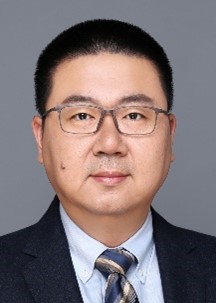Keynote Speaker

Prof. Li Jin
Electronic Materials Research Laboratory, Key Laboratory of the Ministry of Education,School of Electronic Science and Engineering, Xi'an Jiaotong University, China
Speech Title: Polarization Regulation Strategies in Relaxor Ferroelectric Ceramics for Enhanced Energy Storage Performance
Abstract: Relaxor ferroelectric ceramics have garnered significant attention for their potential in energy storage applications due to their unique polarization characteristics. However, achieving high energy-storage density (Wrec) and energy-storage efficiency (η) while maintaining material reliability remains a key challenge. This study consolidates two innovative approaches to design and optimize relaxor ferroelectricity and polarization regulation in (Bi0.5Na0.5)TiO3 (BNT)-based ceramics, leading to exceptional energy storage performance. The first approach employs entropy engineering, leveraging local polar fluctuations and high-entropy design to regulate the energy storage performance of BNT-based dielectrics. By optimizing the atomic configurational entropy in 0.85(Bi0.375Na0.3Sr0.25K0.075)TiO3-0.15 Bi(Mg0.5Sn0.5)O3 ceramics, the study achieves an outstanding Wrec of 11.24 J/cm³ and η of 88.3% under 610 kV/cm. The high-entropy ceramics exhibit remarkable discharge characteristics and temperature stability, demonstrating the efficacy of entropy manipulation in enhancing dielectric performance. The second strategy focuses on mitigating polarization-strain coupling in multilayer ceramic capacitors (MLCCs) to address fatigue and ultrasonic damage in pulse power systems. By designing a composition with ultra-low electrostrictive coefficient (Q33) of 0.012 m4/C2 in 0.55(Bi0.5Na0.5)TiO3-0.45Pb(Mg1/3Nb2/3)O3, the study achieves a minimal strain of 0.118% at 330 kV/cm. This approach enables a significant ESP of 7.6 J/cm³ and an ultrahigh η of 93% under 720 kV/cm, ensuring excellent fatigue resistance and temperature stability. Collectively, these advanced design strategies underscore the potential of tailored relaxor ferroelectric ceramics in next-generation energy storage applications, offering a path forward for achieving high-performance, reliable, and efficient dielectric materials.
Keywords: Relaxor ferroelectric ceramics, energy storage performance, entropy engineering, polarization-strain coupling
Biography: Li Jin holds the esteemed position of professor at Xi’an Jiaotong University (XJTU) in China. He received his B.S. and M.S. degrees in Electronics Science and Technology from the XJTU in 2003 and 2006, respectively. He obtained his Ph.D. from the Swiss Federal Institute of Technology-EPFL in Lausanne, Switzerland, in 2011. Subsequently, from 2011 to 2012, he undertook a postdoctoral research fellowship at the Ceramics Laboratory of EPFL. His research encompasses the fields of ferroelectric, electrostrictive, and dielectric materials, with a particular focus on their integration into passive systems and electronic devices. He has published more than 180 articles in academic publications, which have been cited over 15,000 times.

